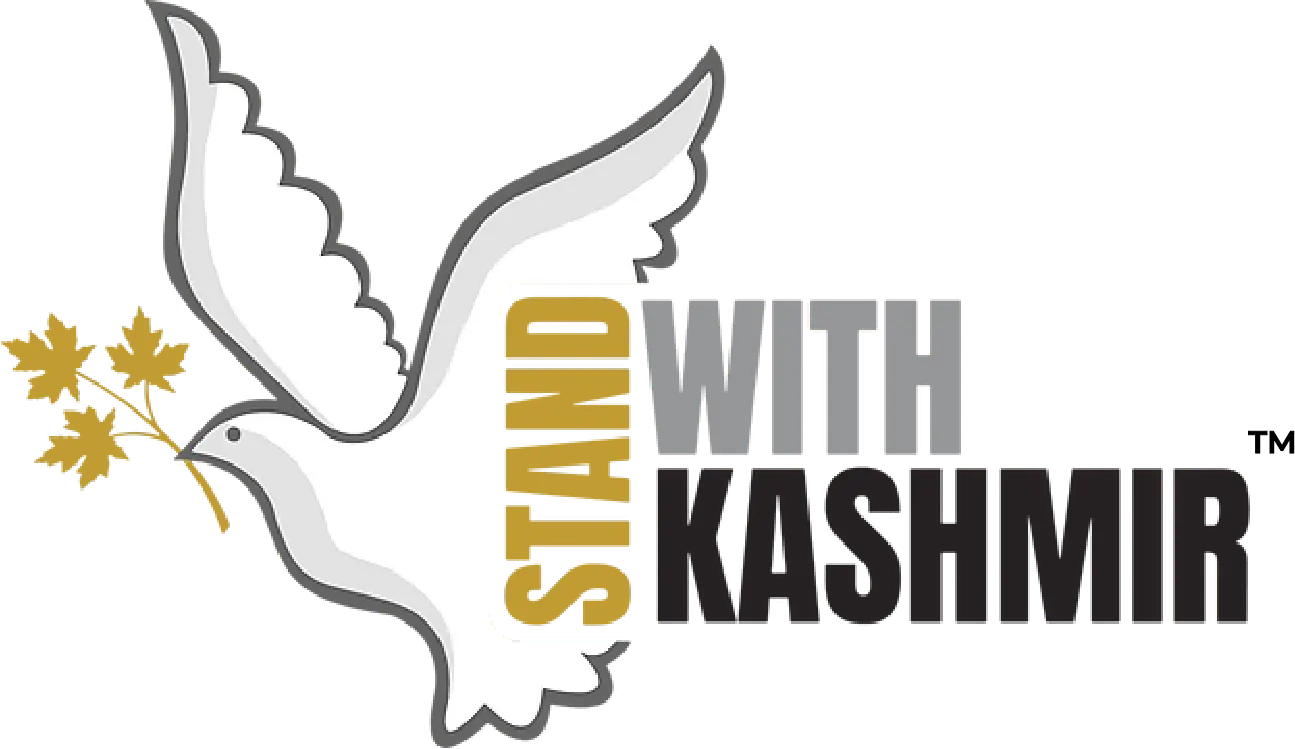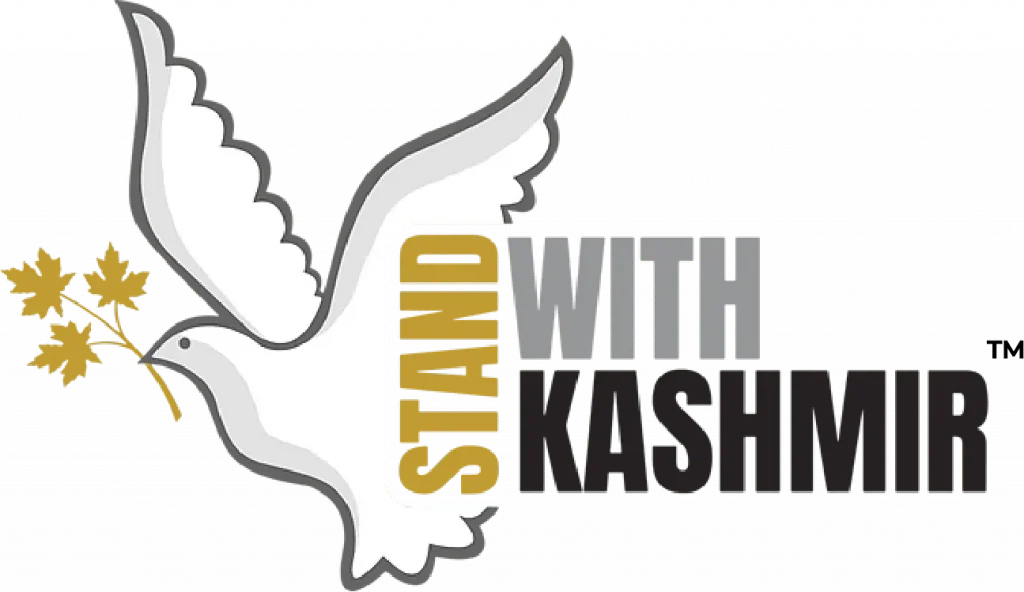From VDCs to VDGs – A Legalised Network of Armed Gangs in indian-occupied Kashmir
September 14, 2022.
indian-occupied Kashmir.
Aside from the Indian army and its paramilitary forces, as well as the Jammu and Kashmir police, India and its client regimes in Kashmir have always employed and trained ‘civilian’ networks to harass, intimidate, surveil, and kill Kashmiris and suppress the freedom movement. These government backed militias and gangs go back to the creation of the ‘Peace Brigades’ in 1947 to, more recently, the creation of the ‘Village Defense Guards’ which came into effect on August 15, 2022. Under the new Scheme, the Village Defence Guards would be charged with the responsibility of ‘protecting community installations and infrastructure facilities’ within the defined areas of their village and ‘conduct night and day patrolling’ in a systematic manner. The Scheme also says that based on the assessment made by Indian law enforcement agencies, a group of armed civilians belonging to the “more vulnerable areas” would be designated as “Village Defence Guards” (VDGs). With no proper definition of what would constitute “more vulnerable areas,” this scheme effectively grants Indian state agencies the power to distribute weapons to people of their choice.
Here is how militias and local gangs backed by the Indian government have terrorized Muslim and tribal populations in Kashmir since 1947:
1947: Peace Brigades:
This militia was created immediately after the contested accession of Kashmir to India to ostensibly repel the ‘tribals’ from Northwest Pakistan, but was used primarily to bolster the power of the National Conference government, a client regime installed by India. Under the then Prime Minister of Kashmir, Sheikh Abdullah, it was named the Peace Brigade and comprised mostly of unscrupulous elements and National Conference (Sheikh Abdullah’s political party) hooligans. In the name of ‘peace,’ they abducted and raped women, humiliated and extorted commoners, and even murdered them. The Peace Brigade was used to silence all Kashmiri voices that were opposed to the accession or were pro-Pakistan. They were either arrested or sent into exile.
Lacking trust from the Indian government, Muslim members of the Peace Brigade were arrested or dischargedbefore Sheikh Muhammad Abdullah’s arrest in 1953. The Militia (dubbed as Dagan Brigade) was converted from a State Militia to a regular unit of the Indian Army on 2 December 1972 and re-designated as the Jammu and Kashmir Light Infantry.
1953: Khuftan Faqir
The second client regime led by Bakshi Ghulam Mohammad constituted a civilian militia named “Khoftan Faqirs” (The Beggars of the Night). This militia, that operated at night, was unleashed by the government against any dissenting voice during Bakshi’s time. They operated with an absolute lack of ethics. President of the J&K Freedom Fighters Association, Ghulam Muhammad Buland has described them as “renegades without weapons” and said that, “They used to settle scores for the state with their muscles and canes.”
The Khoftan Faqirs assembled in Srinagar’s Pattar Masjid before parading around the whole city. Buland goes on to say that, “Their parade would instil a sense of fear among people who would stay quiet in their presence. And if members of [the] Peace Brigade would sniff anything suspicious, they would muscle out the same. The ration cards of suspected persons would be confiscated to starve their families. These were simply the tactics of suppression.”
1980s: Ikhwan ul Muslimeen, A government backed force of renegades:
During the armed rebellion against Indian rule in the 1990s, India created a “counterinsurgency” force made up of former or renegade militants to terrorize the Kashmiri population and silence any dissent. Called “Ikhwan” they were controlled directly by India. They operated with full impunity, engaging in loot, plunder, smuggling, murders, rapes and terrorising the neighbourhoods they grew up in. The Ikhwan were extremely deadly, and engaged in vast human rights abuses. Their purpose was to completely discredit the armed rebellion, and cause untold miseries amongst the local populace, making the cost of resistance too high. Many of them ended up becoming MLAs and received Indian national awards.
In the 1996 elections, Ikhwanis brought Kashmiris to the polling booths at gun-point to vote in candidates selected by India. Kuka Parray, one of the primary and notorious Ikhwani leaders, fought for the elections after forming the Awami League political party. After the election, he went on a rampage, killing and attacking those who did not vote for him. He received the Padma Shri, a high Indian national honor, in 2009.
Ikhwanis, physically accompanied by Indian forces, would also attack any political opponent in the region. Their main targets were people from the Jamaat-i-Islam, Hurriyat Conference, and the Jammu and Kashmir Liberation Front. Their targets also included human rights activists, academics, lawyers, and journalists.
1995: Village Defence Committees
On October 1, 1995, the Home Ministry of India issued “Home Order-293”. Under this order, the Ministry formalised the set up of the “Village Defence Committees” or VDCs, in the Jammu division. These VDCs were a force of volunteers trained in “self-defence” against “militants”. Initially constituted in the districts of Jammu, Kathua, Doda, and Udhampur, they were later extended to Rajouri and Poonch as well. According to the order, 10-15 villagers from each village of Jammu, Kathua, Doda, and Udhampur districts were designated as members of these VDCs and government issued weapons in the form of .303 rifles were provided along with 100 rounds of ammunition for each weapon.The Indian government started calling this militia the ‘first line of defence’ against the pro-freedom armed resistance in the region.
The members of the VDCs, according to the order, were to be selected by the District Magistrates and Senior Superintendent of Police. The order, however, had specific mention of people who already possessed weapons licenses and those who were willing to ‘buy their own weapons’. Since the districts where VDCs operated were Hindu majority with Muslims existing only in small tribal populations, the militia became fraught with Hindusaligned with the Indian colonial state yielding weapons.
Since their inception, VDCs have committed widespread human rights violations and war crimes like murders, kidnappings, and rapes. According to official data, 221 criminal cases have been filed against VDC members in Jammu, including 23 cases of murder and seven cases of rape, 15 cases of rioting, three anti-drug cases and 169 other cases, out of which charges have been filed in 205 cases.
A 2013 report by Child Soldiers International, a London-based advocacy group said that VDCs used for assistance to Indian forces in the Jammu region have led to ‘serious human rights violations.’ “Members of Village Defence Committees have allegedly been responsible for summary executions, disappearances, torture, and unlawful detention of those perceived to have links with armed groups,” the report notes.
In 2015, a woman and her four-year-old son were murdered by a member of the VDC in the Mohra Daveen village of district Rajouri. Later that year, a local youth leader from the former Chief Minister Omar Abdullah’s National Conference party was shot dead by another VDC member in the Kalakote area of Rajouri. This incident was due to an altercation between the two over ration distribution in the area. With the murder of a leader of a client regime party in Kashmir, this incident also brought to light the power and sense of impunity that these VDC members have acquired over time.
2022: Reincarnation of VDCs as VDGs
Calls for the disbanding of VDCs have been louder and louder in recent years amongst Kashmir’s pro-freedom leadership as well as India’s client regimes. However, in March 2022, the Home Ministry of India issued fresh orders for the reconstitution of this infamous militia as Village Defence Guards (VDGs).
Giving them a more formal structure as well as fresh backing from the BJP-led Indian government, VDC members are set to receive a hike in their honorarium. Amidst record numbers of unemployment in the region, this added financial incentive is set to bolster the ‘volunteer participation’ in the militia and in turn result in more and more Hindu ‘civilians’ with arms on the streets along with Indian forces.
The members of a Village Defence Committee in Jammu and Kashmir’s Poonch celebrated receiving ‘permanent status’ under the Village Defence Guards Scheme (VDGS).
Over the course of their existence until now, as many as 27,000 civilians divided over 4100 different groups have been given weapons by the government under the VDC scheme. Statically, only 4% of the 27,000-armed civilians have been Muslims. As the Indian government has rapidly ramped up efforts to change the demography of Kashmir, the re-creation of the VDG’s seems to be the next big step in that direction. The fear is that as more Indian settlers move into the region, they will also be provided with arms in order to consolidate their settler colonization. Given that the VDG’s are government backed, they will also be given complete impunity to terrorize local Muslim and tribal groups by threatening to take their property, committing acts of sexual violence, as well as killings and disappearances.
The existence of these groups will also exacerbate tensions between Hindus and Muslims living in these areas, especially as Hindu populations are provided with weapons and emboldened to commit war crimes and human rights violations against Muslims.
To stay updated with day-to-day happenings of Kashmir and our various campaigns, follow StandWithKashmir across social media.
Stay in touch with Stand with Kashmir.
Stand With Kashmir (SWK) is a Kashmiri-driven independent, transnational, grassroots movement committed to standing in solidarity with the people of indian-occupied Kashmir in ending the indian occupation of their homeland and supporting the right to self-determination of the pre-partition state of Jammu and Kashmir. We want to hear from you. If you have general inquiries, suggestions, or concerns, please email us at info@standwithkashmir.org.
©2023 Stand With Kashmir All rights reserved. SWK is a 501(c)(3) non-for-profit organization.


Leave a Reply